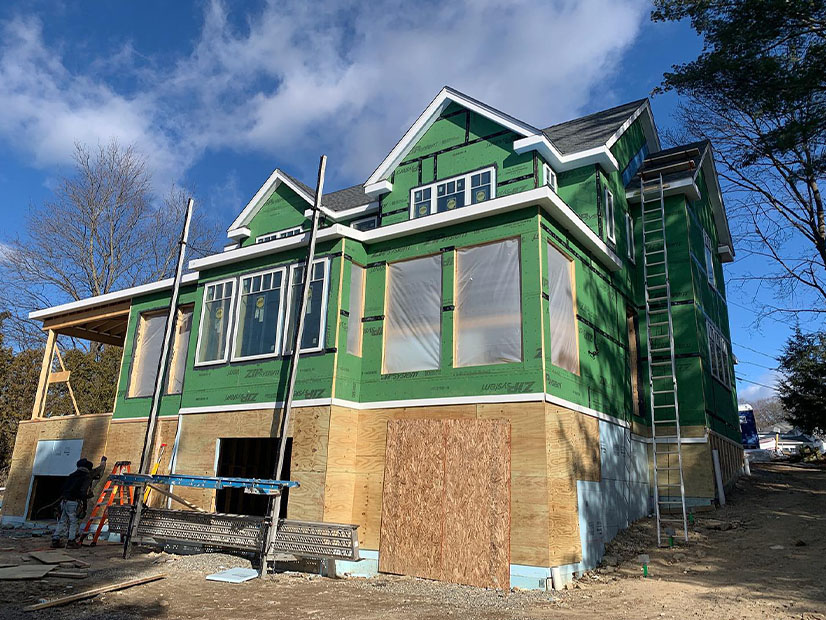
Massachusetts legislators expressed disappointment Tuesday that fossil fuel use would be allowed under a net-zero building code straw proposal introduced by regulators.
The proposal “didn’t go far enough,” said Sen. Cynthia Creem (D), chair of the Massachusetts Senate Committee on Global Warming and Climate Change.
“The draft net-zero code would not represent a path for cities and towns to restrict the use of fossil fuels in new development,” she said during a committee hearing on the implementation of the state’s climate roadmap enacted last March.
A specialized net-zero code will be part of a three-tier system of building codes authorized by the law. Existing tiers include a base building code and a municipal opt-in stretch energy code. The state is updating the stretch code in consultation with the Board of Building Regulations and Standards, which is responsible for regular updates to the base code. In addition, the law calls for development of a municipal opt-in net-zero code as a third tier.
Tiers 2 and 3 — which apply to new building construction, additions and major retrofits — offer progressively more stringent compliance pathways for energy efficiency beyond the base code. The Department of Energy Resources (DOER) released a proposed update to the stretch code and the proposed specialized code last week for comment.
Compliance with the tiers will be based on the Home Energy Rating System (HERS) index, which scores efficiency between zero and 150, with 150 being the least efficient. Buildings complying with the base code must achieve a HERS rating of at least 55, while Tier 2 compliance ratings would be 42 for buildings that use fossil fuel heating and 45 for buildings with electric heating.
Net-zero code compliance would have the same Tier 2 ratings for buildings with fossil fuel and electric heating, but buildings that include fossil fuel heating must also have rooftop solar where feasible and be pre-wired for electrification.
About 85% of Massachusetts’ municipalities already opt in to the stretch code, and many are interested in upgrading to the net-zero code. A group of 30 town and city representatives sent a letter to the Executive Office of Energy and Environmental Affairs (EEA) last fall in support of a net-zero code that gives municipalities “clear authority to prohibit on-site combustion in new buildings and major rehabilitation.”
Without the option for communities to “actually experiment with going net zero,” the proposed code is a “reversal of legislative intent,” Sen. Michael Barrett, committee vice chair, said during the hearing.
“We wrote language that permitted communities to have a vigorous local debate … before opting in, but we imagined that once they made that decision, they would do so knowing that new construction without a backup fossil-fuel hookup was an option that they could pursue,” he said.
The purpose of the new code, as written, is to “encourage construction of all-electric buildings,” Kathleen Theoharides, secretary of the EEA, said in hearing testimony.
“Dictating certain fuels be used or certain things be banned is not innovation; it’s a requirement,” she said. “What we’re doing is creating a code that requires the most energy-efficient building envelopes possible, as well as additional things that … allow for experimentation.”
Creem would like to see the administration update the proposed code so that it is a “fossil-free option” for municipalities. But the proposal, Theoharides said, balances energy efficiency, cost and emission reductions, while seeking to ensure an orderly transition.
“The challenge with letting some people come off of gas … is that you leave customers on the gas system who are the least able to make the change and end up bearing the brunt of the cost for the remaining gas system as we transition away from it,” she said.
The DOER will accept comments on the straw proposal for the updated stretch code and new net-zero code through March 9, followed by public hearings over the summer. The final language for both codes is due in the fall.


